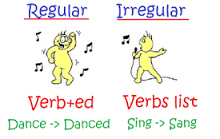A common noun is a word that names people, places, things, or ideas. They are not the names of a single person, place or thing.
A common noun begins with a lowercase letter unless it is at the beginning of a sentence.
For example:-
|
Animals:- |
cat, dog, fish, ant, snake
| |
Ideas:- |
love, hate, idea, pride
| |
People:- |
man, girl, boy, mother, father, child, person, teacher, student | |
Places:- |
school, city, building, shop | |
Things:- |
book, table, chair, phone
|
We use common noun in the sentences to denote a class of person, place, or thing whereas proper nouns are used for a specific person, place, or thing. Common nouns are name to general items rather than the specific ones. Some common examples of the common nouns in your living room or study room are like remote, lamp, TV, chair, couch, window, paintings, bed, pillow, candle, table, door, etc. We can see the examples of common nouns very easily everywhere in our surroundings.
Examples of common nouns outside the home are mall, restaurant, hotel, street, bathroom, school, station, college, friend, office, temple, park, post office, backyard, beach, supermarket, pet store, teacher, police officer, clerk, manager, window dresser, writer, delivery driver, coffee shop, waiter, cousin, birds, animals, etc.
Some common nouns in our kitchen are like washing machine, refrigerator, stove, window, toaster, oven, utensils, coffee maker, wallpaper, sink, plate, glass, coffee mug, cup, bowl, mixer, juicer, pan, cooker, etc.
Common Noun CategoriesThere are different classifications of common nouns that encompass the range of people, places, and things represented with these words. Many nouns fall into multiple categories, but for a word to qualify as a common noun, it must fall into at least one of the following. - Abstract nouns: ideas and concepts that are not directly tangible.
- Collective nouns: words that describe groupings of other nouns.
- Compound nouns: words that are constructed by combining two or more words.
- Concrete nouns: things that you can touch or see.
- Non-countable nouns: objects or ideas that you can’t count; lacks a plural form.
- Gender-specific nouns: nouns that are specifically gendered either masculine or feminine.
- Verbal nouns: also known as gerunds, these are words that describe actions, ending in -ing.
Examples of Common NounsBelow you’ll find multiple examples of common nouns, and a few proper nouns for comparison, divided by category for easy identification. For reference, this list will be formatted with common noun first, and proper noun second, in italics, like so: - common noun – proper noun
This will only be the case for noun categories or words where proper nouns exist. You can read up on more English grammar concepts in this guide. Abstract Nouns - happiness
- anger
- beauty
- sadness
- love
- hope
- knowledge
- bravery
- intelligence
- justice
- generosity
- success
- chaos
- determination
- freedom
Collective Nouns - group
- team
- pack
- choir
- band
- flock
- committee
- panel
- army
- herd
- swarm
- troop
- fleet
- pair
Compound Nouns - bus stop
- swimming pool
- basketball
- haircut
- software
- checkpoint
- saucepan
- box set
- coffee table
- housework
- babysitter
- mother-in-law
- textbook
- bathtub
- sunrise
- backpack
Concrete Nouns - soda – Coke
- car- Toyota
- tissue- Kleenex
- bandage – Band-Aid
- gelatin – Jell-O
- restaurant – Panda Express
- supermarket – Target
- mall – Westfield Galleria
- city – San Francisco
- street – Park Avenue
- country – Japan
- river – Amazon River
- lake- Lake Erie
- ocean – Pacific Ocean
- tea – Earl Grey
- coffee – Folgers
- school – Harvard University
- backpack – Jansport
Non-Countable Nouns Non-countable nouns lack a plural form, and should fall into at least one of these categories: - Concept – intelligence, honesty, happiness
- Activity – homework, sleep
- Food – rice, milk, butter, bread, cheese, bacon
- Gas – oxygen, air, steam
- Liquid – water, beer, coffee, wine, juice
- Material – leather, wood, metal, cloth, spandex
- Item Type – money, software, clothing
- Natural Phenomenon – rain, gravity, fog, snow, thunder
- Particles – sand, dust, flour
Gender-Specific Nouns Nouns - actress – Lupita Nyong’o
- actor – Kevin Spacey
- waitress
- waiter
- chairwoman
- chairman
- duchess – Duchess of Cambridge
- duke – Duke of Edinburgh
- mother
- father
Verbal Nouns - walking
- jogging
- running
- swimming
- playing
- singing
- dancing
- eating
- drinking
- laughing
- sitting
- sleeping
Categorized Examples of Common Nouns
We have provided below the list of common nouns under various categories such as:
People: brother, sister, mother, father, child, toddler, baby, teenager, grandfather, grandmother, writer, student, philosopher, teacher, minister, president, businessperson, photographer, salesclerk, woman, man, person, driver, officer, doctor, engineer, principal, peon, labor, nurse, shopkeeper, gatekeeper, sweeper, salesman, friend, boy, girl, madam, sir, and so many.
Places: country, city, town, village, state, building, continent, shop, restaurant, hotel, school, park, coffee shop, zoo, water park, mall, house, college, laboratory, library, classroom, temple, etc.
Ideas: happy, sad, love, respect, honor, hate, patriotism, pride, etc.
Animals: cow, buffalo, lion, tiger, dear, fish, bear, dog, goat, cat, tortoise, alligator, bird, wolf, snake, frog, horse, ant, donkey, etc.
Things: chair, table, truck, book, pencil, eraser, box, iPad, iPhone, computer, coat, boots, TV, remote, bed, fan, coaster, camera, mobile, etc.
Relatives: father, mother, grandfather, grandmother, daughter, son, brother, sister, baby, child, children, uncle, aunt, etc.
Fruits and Vegetables: grapes, apple, guava, peach, fig, banana, apricot, lettuce, broccoli, celery, carrot, spinach, cabbage, etc.
Rules to be followed while using Common Noun
1) Common nouns are not written in capital letters.
For example:
- A girl wants to play with doll. (here, girl is a common noun)
- I love to see over bridges. (bridge is a common noun)
- I like to drink cow (cow is a common noun)
2) Common nouns can be written in capital letter only when they start the sentence or used as the part of a title.
For example:
- Wolf is a very clever animal. (''wolf'' is a common noun as it starts the sentence)
- Ants are small animal however very daring. (''Ants'' is a common noun as it starts the sentence)
- Water park is nice place for children. (''Water park'' is a common noun as it starts the sentence)
- School education is very necessary for all children. (''School'' is a common noun as it starts the sentence)
Use of Common Nouns in the Sentence
Common nouns are general names so we cannot capitalize them unless they start a sentence or used as part of a title. Common nouns can be used anywhere in the sentence according to the need and requirement. It can be used in the manner as it not show the grammatical error. It can occur in between the sentence anywhere or in the start of the sentence. It is written in small letter if occur anywhere in the sentence, however written in capital letter if occur in the start of sentence. Following are the examples of common noun which will help you to recognize exactly what are common nouns.
- Seema has broken my coffee mug.
- My dad has bought a new pair of jeans.
- I still remember the name of painter who had paint my home.
- Come on, hurry up! My friends are waiting for me at the restaurant.
- I live for many years with my parents in the big city.
- We went to see live cricket match yesterday at the stadium.
Common Noun Exercises for you
We have provided below common noun exercises which will surely help you in analyzing your knowledge about common noun. You need to just go through all the above details about common noun and check your skill by doing the exercises for common noun. We have used common nouns in following sentences, you can practice using following sentences and enhance your skill for common noun:
- My sister has bought me a nice jeans.
- My mom gives me sandwich in lunch box.
- I have two small chairs.
- My sweet home is located in good arena.
- ____ is a highly populated ____ _____.
- I have two sisters.
- Children are playing in the ground.
- Lion is the king of the jungle
- ____ is the ____ animal of ____.
- Akbar was a famous king.
- I love to eat grapes.
- We should keep the Ganga river clean.
- ____ _________ is the _________ of ____.
- The Nile is the world's longest river.
- A girl of class tenth was rewarded for her honesty.
- Mom gives me an apple and milk in the breakfast.
- I saw a man running swiftly.
- A woman was weeping on the road.
- Apple is very healthy fruit.
- It makes me happy to play with kids.
- I see thousands of stars in the sky.
- Many birds migrate during summer and winter season.
- Traffic police handles the road traffic.
- My dad was tired so he slept early.
- Some boys went for jogging daily.
- We go to restaurant at every weekend.
- We were stay at hotel in London.
- Mountains look beautiful when sun rises.
- Stars are not visible in the sunlight.
Answers: 1 – sister, jeans, 2 – mom, sandwich, 3 – chairs, 4 – arena, 5 – country, 6 – writer, 7 – sisters, 8 – Children, 9 – lion, king, 10 – Tiger, 11 – king, 12 – grapes, 13 – river, 14 – prime minister, 15 – river, 16 – girl, 17 – mom, apple, 18 – man, 19 – woman, 20 – Apple, 21 – kids, 22 – stars, 23 – birds, 24 – police, 25 – dad, 26 – boys, 27 – restaurant, 28 – hotel, 29 – Mountains, 30 – Stars.
|





